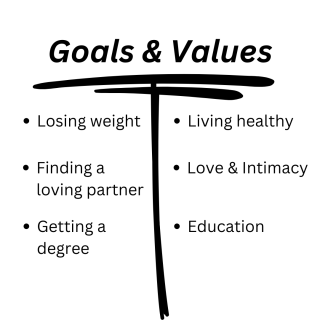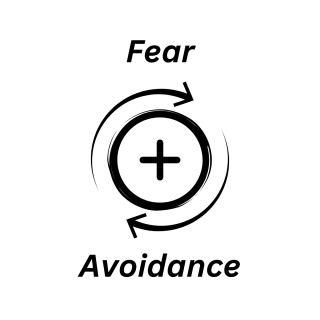
Source: Pexels/Andrea Piacquadio
When I was eight or nine years old, I would hide under the bed, hearing my parents scream at each other. Dad had come home late and drunk, again, and my mother began berating him about his inadequacies and failures as a husband and father. He responded by repeatedly yelling at her to shut up…or else. His threats only sharpened her tongue, when suddenly I heard a horrific crash and then screams from my mother. I would learn only later that the coffee table had just been thrown across the living room, but at the time I just trembled at the thought of what it could have meant: Will there be blood? I wondered. Is he hitting her? Are they killing each other?
The domestic violence in my parents’ household impacted me for many years and even decades later, when the suppressed anxiety would surface in the form of nasty panic attacks. First, it happened in a meeting of the psychology department faculty, but then it happened in a restaurant, and then again, and again, and again…while I was retreating more and more from life, in an effort to avoid this horrific feeling. It took three years of struggle before I discovered a different way of dealing with my anxiety, and for the last 43 years I’ve worked to find a way to understand this change and to produce it in the lives of others.
For the next decade I occasionally had severe anxiety attacks but except for one brief minute-long breach of trust in myself I never again threw that switch that turns anxiety into panic. I can honestly say “I no longer suffer from panic attacks” provided I could refine what I mean. That is what I’m doing in this post.
Through decades of psychological research, we now have a good understanding of how fear is created and maintained, and – most importantly – how you can deal with it effectively, so that it doesn’t diminish your life. In the following questions, I will walk you through the process of overcoming your fear, so you can stop fighting your feelings, and start living on your own terms. Let’s begin.
1. Why do you even care?
Facing your fear is inherently uncomfortable, so why do you even want to bother in the first place? Your mind may say, “to get rid of it!” but look deeper. In all likelihood, it’s because there’s something on the other side of it, something that you care deeply about. And in order to overcome your fear, it’s worth exploring what this “something” might be.
Specifically, we differentiate between two things: your goals and your values. Goals are objectives you want to reach or achieve, which you can “check off” once you have done so. Values, on the other hand, are never-ending directions you want to move toward. While goals are often in the service of something else, values are self-serving: They matter because you feel in your heart that they do. No other reason is necessary.

Source: David Lorscheid/Used with permission
So what is your feeling getting in the way of? What would you do differently if fear didn’t show up? Are there certain things you would like to do more often? Or certain things you would like to stop doing? Are there any ambitions you would like to realize, or values you want to live by? Sit with these questions for a minute or two, until you have found some answers. By knowing the reason(s) why overcoming your fear is important to you, you will not only have a direction to move toward to regain a sense of purpose and meaning, but will also be more likely to stick through the hard times.
Questions to Dig Deeper
- If it wasn’t for your fear, what goals would you try to achieve?
- If it wasn’t for your fear, what values-based actions would you engage in?
2. What is your fear like?
Many people have a long-distance relationship with their uncomfortable feelings. This means tht the moment these feelings show up on the horizon, they retreat, so they don’t have to feel them in full. While this may sound positive – after all, they then avoid feeling uncomfortable – it also leads to unfortunate side effects.
If we shy away from our fear too often, eventually we become scared of being scared. This means that the moment we notice even the slightest hint of nervousness in our body, we become scared, thus amplifying our initial fear, making it even bigger – and thereby even harder for ourselves to confront. It’s a vicious cycle in which fear fosters our tendency to avoid fear, and our avoidance in turn strengthens our initial fear, and so on.

Source: David Lorscheid/Used with permission
There is, however, a solution to this dilemma, although you may not like it. It’s about getting to know your fear – not just by thinking about it or by describing it, but by feeling it. Where does it show up in your body? What can you sense? Do any specific thoughts show up, while you are feeling scared? Be curious. Look closely. Learn. By repeatedly making contact like this, you will begin to see fear as it is, not as what it says it is. It is rarely as your mind makes it seem. More importantly, you will find that you can still do the things that matter to you – with or without fear.
Questions to Dig Deeper:
- What does anxiety feel like in your body? (Don’t describe, but feel it)
- What thoughts accompany your fear? (Don’t describe, but notice them)
3. What are you willing to feel?
The truth is, your fear may entirely disappear and never come back again. Then again, it may not. There are no guarantees, and the real way of overcoming your fear is about letting go of trying to control it. Your fear may show up, or it may not. Either is fine. Truly.
In all likelihood, this isn’t what you wanted to learn, because it strays from all-too-common assertions that “you only need to do X to never be afraid again.” Unfortunately, however, your body doesn’t care about slick marketing chatter; reality is more complex. Learning to let go of trying to control your fear can be a repetitive process. It requires practice, whereby you open yourself up to difficult feelings. This means feeling the butterflies in your stomach, allowing yourself to tremble, and noticing the urge to run away and hide…without actually running or hiding.
Please be aware, this is not a matter of pressuring yourself to confront your fear through brute force. This would be neither kind nor particularly helpful. Instead, it’s about showing yourself compassion, and taking yourself by the hand – as if you were holding a frightened child. It’s okay to be afraid. It’s okay to feel like you cannot do it. It’s okay to have all these feelings and these self-doubts; they are allowed to be here. This is about learning that things are going to be okay, which you can do by consciously opening up to your feelings, and then taking a step in a meaningful direction – one kind step after the other.
Questions to Dig Deeper:
- What is a simple way for you to practice feeling your fear?
- How long are you willing to allow yourself to watch and notice your fear?
Three Big Questions and Three Big Answers
If you answer these three questions you will learn three important things about your fears: why it matters, how to see it, and how to say “yes.” And that will make all the difference.
